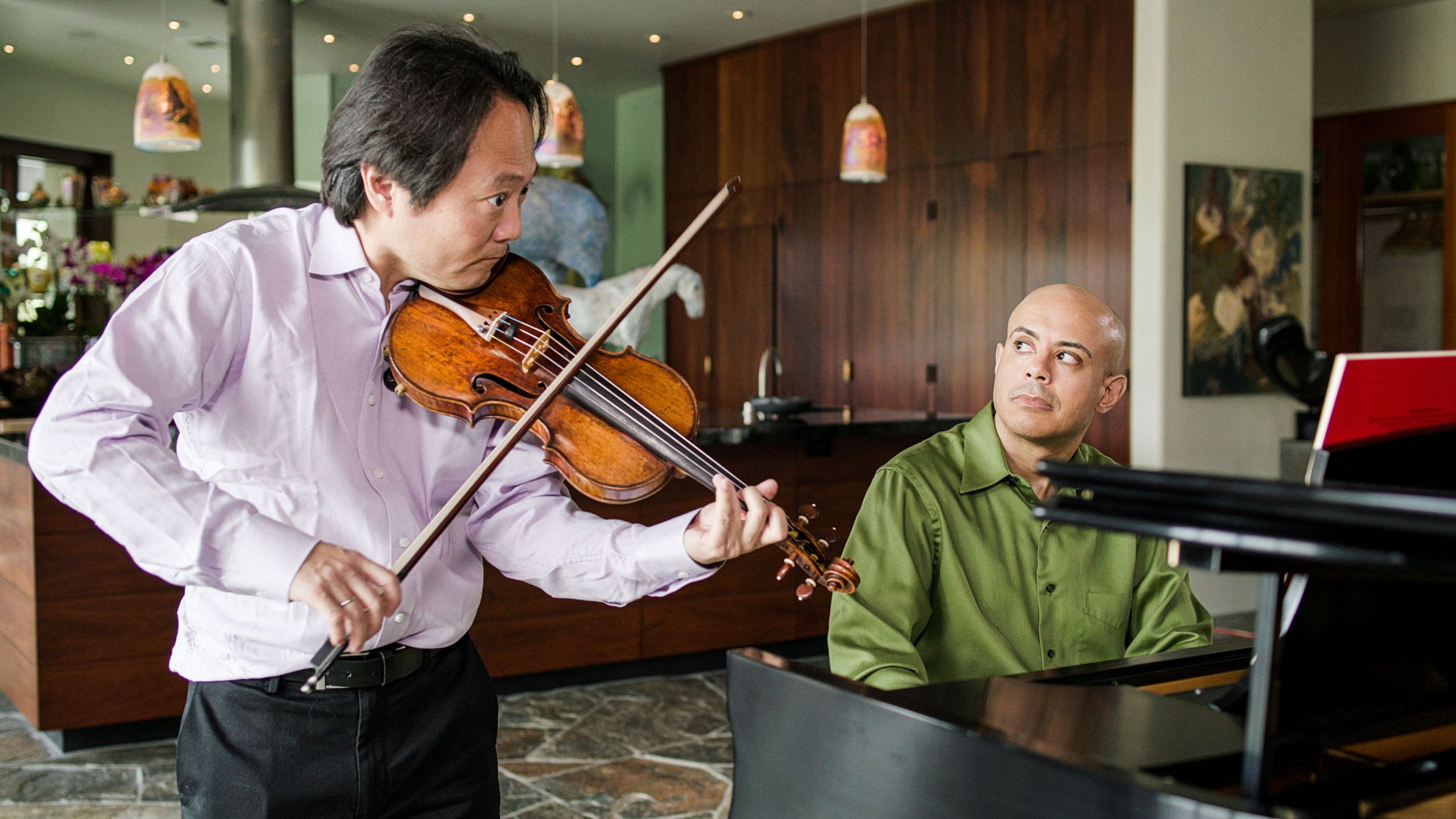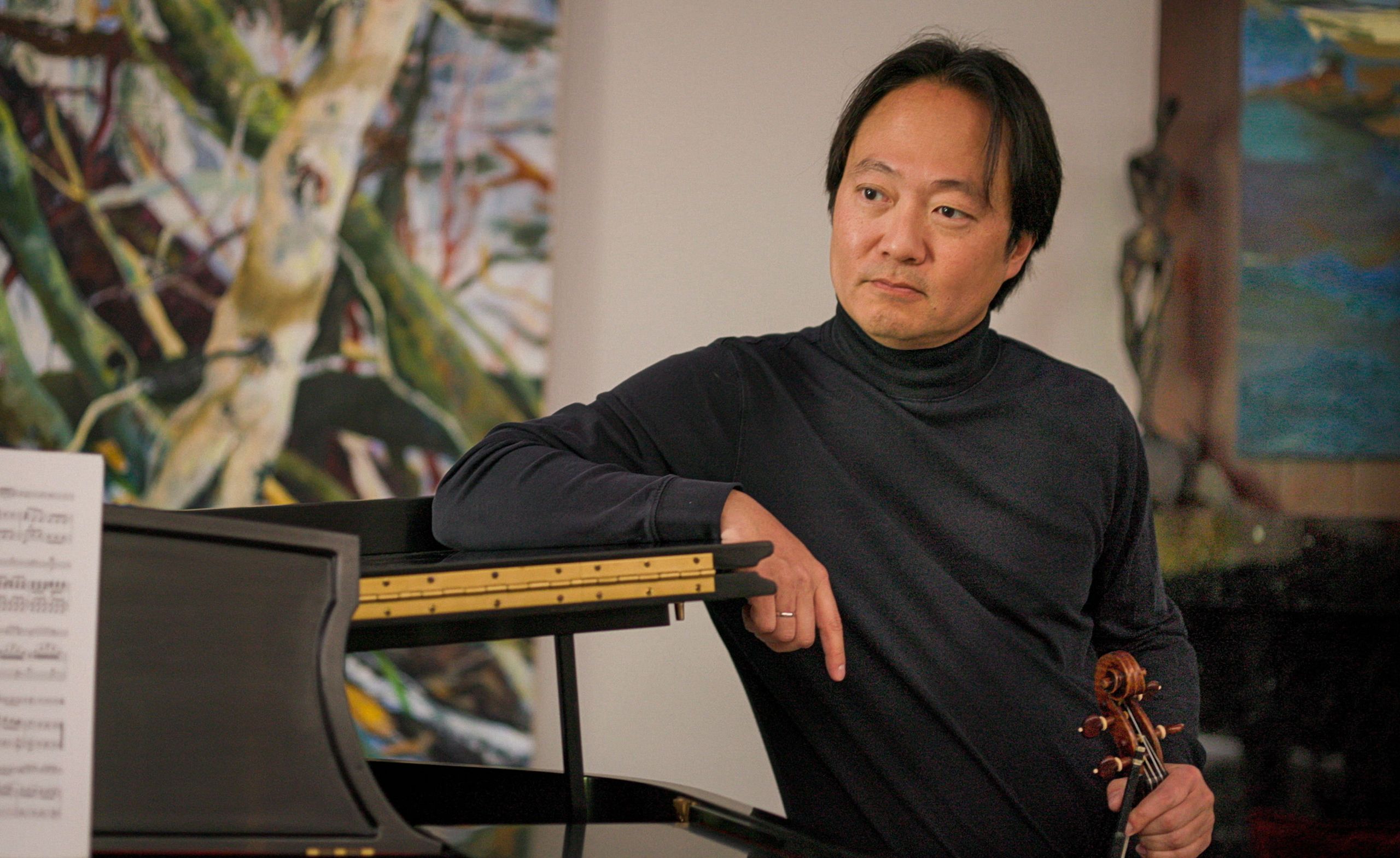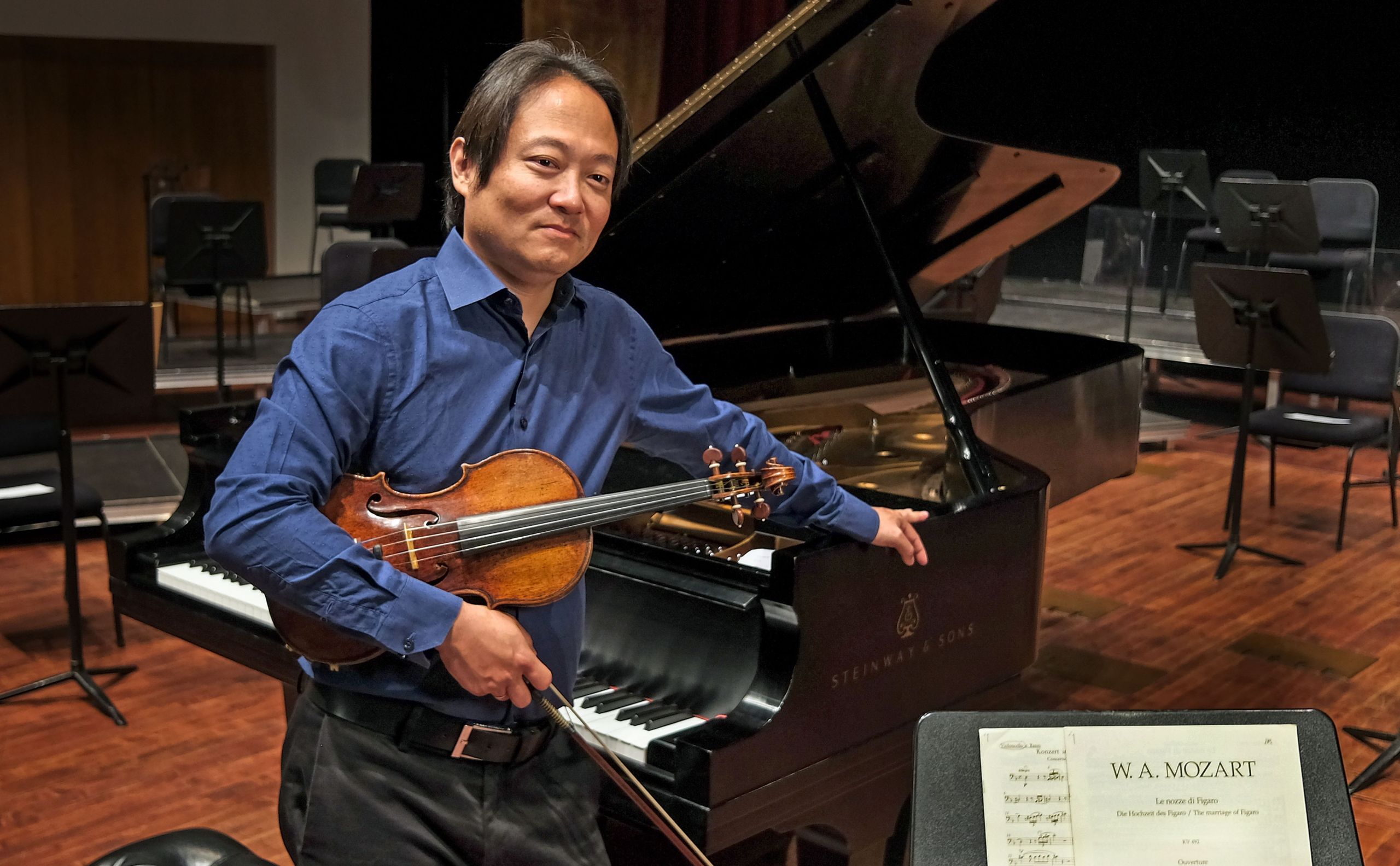By Scott Yoo

photo credit: Arcos Film + Music
Host of Now Hear This and Mexico City Philharmonic music director Scott Yoo shares some of his favorite compositions by Mozart and points out the duality in some of his works.
Listen along to all of these at on our playlist here.
What is your favorite piece by Mozart? Let us know, and don’t miss Now Hear This streaming on pbs.org/nowhearthis and the PBS Video app.
Mozart Piano Concerto No. 20 and 21
Friedrich Gulda
Vienna Philharmonic
Claudio Abbado
This is an album I grew up listening to (it was a new release when I was a child!). The 20th concerto, which is featured in the Now Hear This episode “Becoming Mozart,” is a dark and stormy work in a minor key. Amazingly, it was written at the same time as its opposite twin: The 21st concerto (known by some as the “Elvira Madigan”) which is light, cheerful, and optimistic – in a major key. Gulda has a very romantic take on these concertos, and I’m sure you will enjoy this a lot. It is Mozart at the height of his powers.
Mozart Symphony No. 40 and 41
Bavarian Radio Symphony
Herbert Blomstedt
Another example of the opposite-twins in Mozart’s music are his two last and arguably greatest symphonies: His 40th and 41st. They are written for comparatively small orchestras by today’s standards, but they are titans in the repertoire. Beethoven was strongly influenced by the second movement of the 40th and the first movement of the 41st when writing his own first symphony. I have always loved Herbert Blomstedt’s performances, and he is giving his best concerts ever at the youthful age of 93!

Scott Yoo
photo credit: Arcos Film + Music
Mozart: Marriage of Figaro
Bavarian Radio Symphony and Chorus
Sir Colin Davis
During a violin lesson decades ago, my teacher pointed out that Mozart was primarily an opera composer, and that all of his music— including what I was playing at the moment— should be seen through that lens. As a 16-year-old instrumental player with no prior experience of opera this was mind-blowing to hear! Many consider “The Marriage of Figaro” the greatest opera ever, and we play the overture at the beginning of “Becoming Mozart.” He wrote it when he was just 29, and then followed it with one masterpiece after another: “Don Giovanni,” “Così fan tutte,” and “The Magic Flute” were still to come. Get to know them all to hear the best music Mozart wrote.
Mozart: Piano Quartets
Emanuel Ax, Isaac Stern, Jaime Laredo, Yo-Yo Ma
Mozart not only wrote the best operas and piano concertos — he invented forms like the Piano Quartet. The Piano Quartet adds a viola to the more familiar Piano Trio (piano, violin, cello) to give the stringed instruments more possibilities and a richer texture. Mozart wrote two Piano Quartets, which are also opposites: The darker, more powerful G minor and the lighter, sunnier E-flat major. The success of these two pieces inspired Brahms, Schumann, Fauré, and Dvorak to write piano quartets of their own. Outside of the string quartet, it is my favorite form of chamber music.
Mozart: Serenade “Gran Partita”
Berlin Philharmonic
Zubin Mehta
The third movement of Mozart’s Gran Partita was made famous by Milos Forman’s 1984 movie “Amadeus,” but do listen to the other movements as well. Serenades like this one were written to entertain and relax, especially at night. Remember, there were no phonographs and radios back then! Mozart wrote serenades for strings, like the famous “Eine Kleine Nachtmusik,” which were written for indoor events. Serenades like the Gran Partita, written for 12 woodwind instruments and a double bass, were probably written for outdoor events. One of the under-appreciated elements of Mozart’s genius was his ability to write so well for instruments that he did not even play. A French hornist once told me how well he wrote for the horn, my wife raves about how he wrote for the flute. All of those skills are in full display in this serenade.

Scott Yoo
photo credit: Arcos Film + Music
